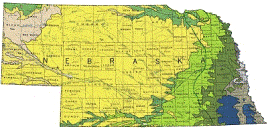United States Geological Survey

United States Geological Survey: Staff Publications
Document Type
Article
Date of this Version
2010
Citation
Journal of Archaeological Science 37 (2010) 621–629; doi:10.1016/j.jas.2009.10.027
Abstract
Between A.D. 1181 and 1200, in the early part of a climatically wet period, corn was imported to Chaco Canyon from a region outside the Chaco Halo (defined in this paper as the region between the base of the Chuska Mountains and RatonWells). Strontium-isotope (87Sr/86Sr) analyses of 12 corn cobs dating to this period match 87Sr/86Sr ratios from five potential source areas, including: the Zuni region, the Mesa Verde-McElmo Dome area, the Totah, the Defiance Plateau, and Lobo Mesa. The latter two areas were eliminated from consideration as possible sources of corn in that they appear to have been unpopulated during the time period of interest. Therefore, it appears that the corn cobs were imported from the Zuni region, the Mesa Verde-McElmo Dome area, or the Totah area during a time when the climate was relatively wet and when a surplus of corn was produced in regions outside Chaco Canyon. Based on proximity to and cultural affiliation with Chaco Canyon, it is hypothesized that the corn probably was imported from the Totah.

